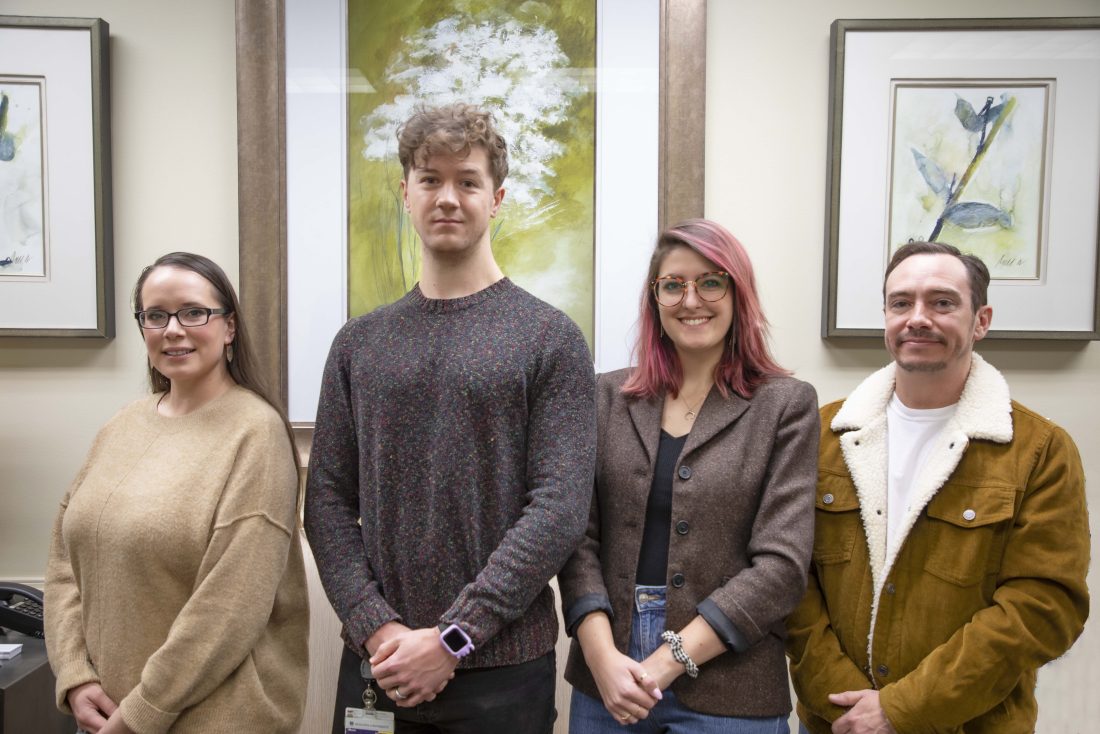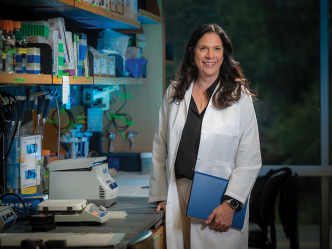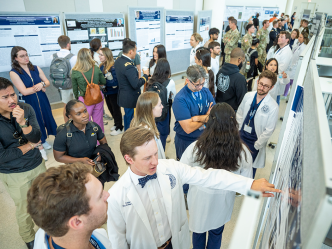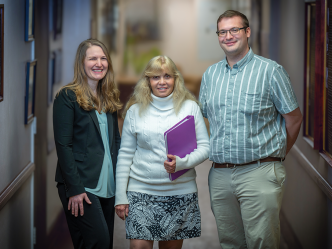David Stepp, PhD and Jennifer Sullivan, PhD are co-directors of a new National Institutes of Health grant to fund the integrated Multi-Disciplinary Training Program in the Mechanisms of Cardiometabolic Disease, referred to as the Cardiometabolic Training Program (CMTP), at Augusta University.
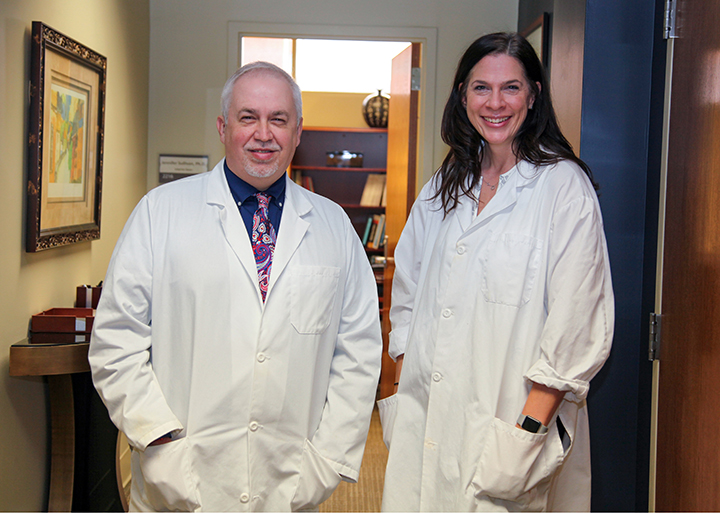
The objective of the CMTP is to provide highly qualified emerging scientists — that is, students pursuing their PhD or MD/PhD in the biomedical sciences at Augusta University — with interdisciplinary training in cardiometabolic disease through a comprehensive blend of didactic course work, formal and informal instruction in necessary research skills, and state-of-the-art research opportunities under the direction of a cohesive program dedicated to trainee success. The focus of this training is on mechanisms of cardiovascular and renal disease in compromised metabolic and endocrine states.
This NIH-funded, highly competitive T32 training grant currently supports the PhD work of four graduate students: Candee Barris, Drew Speese, Katie Anne Fopiano and Karl Diaz-Sanders.
“The T32 grant allows for additional support in a number of ways for students interested in continuing in a career in academic research. As a student, having mentors and a group to provide support during graduate school is so important,” said Fopiano.
“We are still learning as students, and the T32 principal investigators are playing a role in better supporting and better preparing us to exceed not only in our graduate work, but also in our academic careers as a whole.”
Fopiano is a fourth-year PhD in physiology candidate in the biomedical sciences program at Augusta University. Receiving the NIH T32 grant enables her to present her research findings at conferences where she can both share her own data and learn about other cutting-edge research projects in the field.
Diaz-Sanders agrees. He is a vascular biology student who hopes to fulfill his lifelong dream of doing biomedical research, and the grant is his first major step on that journey. He said the grant gives him the freedom to answer questions that are not only interesting to him, but also to the Vascular Biology Center at Augusta University.
“With this support, not only am I able to excel as a student, but it allows me to engage in outreach opportunities in the community, helping foster a new generation of researchers,” said Diaz-Sanders.
Speese is also a PhD student in the vascular biology graduate program. He is studying the cardiovascular complications that arise from obesity, and seeks to understand the mechanisms behind how elevated muscle mass, even in the absence of exercise and weight loss, improves or reverses many obesity-induced pathologies.
Barris rounds out this team of T32 scholars. She is also a vascular biology PhD student who credits her own success, in part, to the teamwork she has experienced among the group as they work on the connections between cardiovascular issues and weight. She explained that aside from research, the group meets monthly to discuss training, grant writing, experiments and more.
Each student in the cohort was attracted to the biomedical sciences PhD program for different reasons, but mainly their access to meaningful research opportunities.
Barris is an Augusta local and did her undergraduate degree at AU, so was familiar with the university’s atmosphere and advantages that would help her continue her ambitions to conduct meaningful and deliberate research.
“I chose the vascular biology graduate program because it offers exceptional research training. The Vascular Biology Center boasts an impressive history of being consistently well funded, and it houses a collection of faculty who are well known in their respective fields and committed to the success of their trainees,” said Barris.
Diaz-Sanders chose AU for similar reasons.
“Augusta University provided an affordable tuition and gave me the opportunity to be surrounded by some of the best researchers in the world,” he said. Diaz-Sanders has found the vascular biology program to be strongly funded and to have “the best mentoring” a student could ask for.
“I can confidently say I have never felt more supported in all my academic career,” he said.
Speese was encouraged to enter the program by its faculty. “I’ve always been interested in science and decided on AU because Dr. Stepp and other Vascular Biology Center faculty convinced me of the rigor and competitiveness of AU’s graduate program,” Speese said.
Fopiano chose the program because of its collaborative and inviting environment. She met many professors and students when she came to interview for the program, all of whom received her kindly.
“They made me feel welcomed and I felt that they truly had the students’ best interests at heart. I joined my department and lab specifically because I could see that my major advisor was filled with excitement about research, a drive to constantly learn, and patience when teaching students,” said Fopiano.
All four of these students hope to continue in a research career path after graduation. Diaz-Sanders hopes to do immune-cardiovascular research at the NIH. Barris plans to further investigate the sex-specific mechanisms underlying the development of cardiometabolic diseases. Speese will continue to work in biomedical research, as will Fopiano, who hopes to work in a post-doctoral position before entering academia, to follow in the footsteps of her mentors.
 Augusta University
Augusta University
